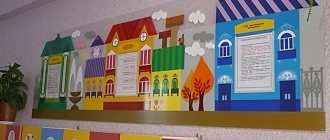When a child goes to kindergarten, parents experience real stress. They don’t know how the child will be received in the new team, how the teachers will treat him, whether he will eat and play normally.
The main problem is that not everyone understands that even the smallest child is a full-fledged citizen of the country. Accordingly, he can count on the protection of the state from the first days of his life, regardless of where he is. Therefore, before starting training in a preschool educational institution, it will be useful to visit the organization and carefully study the information that should be presented in the child rights corner in the kindergarten. Let's take a closer look at some important points.
Enrollment in preschool educational institution
Some parents prefer to be content with the meager information that the kindergarten administration provides them. However, it is very important to know your rights and the rights of your baby. First of all, when visiting a preschool educational institution, each parent can clarify both the qualifications of the teachers and the plan of classes and entertainment events.
However, there is not always money for legal advice for parents, especially considering how much such training costs today. In this case, it is recommended to read the reviews of other parents about the chosen preschool educational institution.
In addition, parents have the right to visit the educational institution during classes and make sure that they are going on as normal. Also, speaking about the rights of a child in kindergarten, it is worth noting that his father and mother should be given the opportunity to personally talk with each of the teachers and get acquainted with their documents.
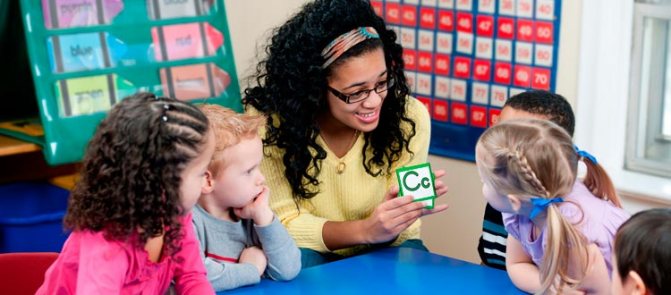
It is recommended that you read the agreement first. It must provide comprehensive information. The contract also stipulates the rights of the child in kindergarten. These conditions can be divided into two categories.
Getting ready for kindergarten
Russian reality is such that enrollment in a kindergarten often begins immediately after the baby is born, but a child can only enter the institution after reaching the age of three. The reason was the increase in the birth rate, as well as the closure of many preschool educational institutions during the destruction of the USSR. To solve the problem associated with the lack of space, new gardens are being built these days, but it is not yet expected to be completely eliminated.
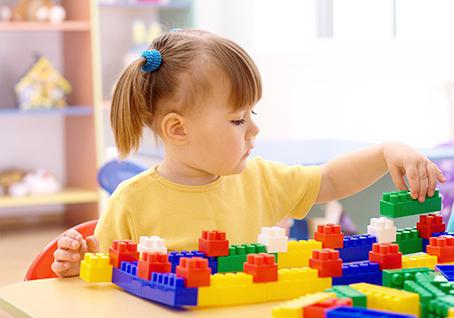
To protect the fundamental right of a child in kindergarten, namely the child’s ability to attend this institution, the law established the obligation of authorities to provide children with a vacant place to receive preschool education. As soon as it’s your baby’s turn to decide on a deployment, various problems arise in the family. First of all, this is due to the fact that the child is waiting for a new stage in his life, he has anxious feelings, because it is not clear what exactly will happen in a new place, where there will be no father or mother next to him. The feelings of parents who expect their child to enter a preschool institution are much brighter. They feel concern, sadness, some fear, and excitement for their future “student.”
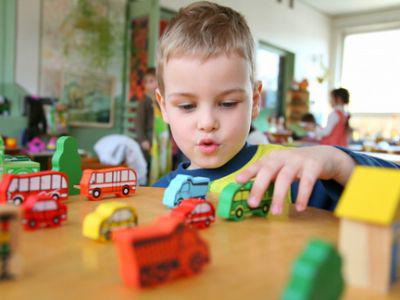
One of the serious issues that should not fall out of the sight of parents is the rights of the child in kindergarten. Not all modern mothers and fathers have a complete understanding of them. Although ignorance sometimes gives rise to very serious mental problems, which are very difficult to correct even after a few years. The content of the child’s rights is a problem that not every father or mother thinks about, while educators can take full advantage of it.
The right to develop creative abilities
In this case, we are talking about the fact that, in addition to regular classes, quiet time and walks, the child should be given the opportunity to realize his talents. This means that preschool educational institutions must conduct classes aimed at developing the child’s mental and logical thinking.
Moreover, these rights of a child in kindergarten are recommended by the government of the Russian Federation. At the same time, Federal programs have been developed that all preschool educational institutions without exception must follow. If a kindergarten representative states that they are not obliged to provide such services, then this is a gross violation of the law. In this case, we are talking about violation of the rights of a child in kindergarten. For parents, this may be a clear reason to appeal to higher authorities. You can find out more about these conditions by reading the Education Law.
In addition, in the process of conducting general programs, teachers are obliged to preserve the individuality of the child. Thus, a differentiated approach must be found for any child that will help develop his talents and individual abilities.
What can parents do to protect their rights?
Parents are called upon to protect their children and ensure that their rights are respected in kindergartens:
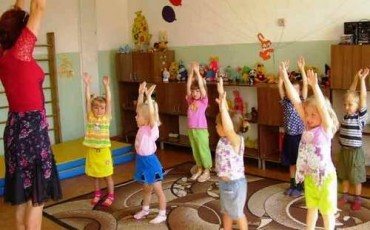
- It is important to select an institution correctly, so that the staff working in it are sufficiently qualified , humane, knowledgeable about their work and able to handle small children. A child in the garden should be comfortable and warm, only such conditions should be created.
- Parents have the right to show interest in the daily routine in the preschool educational institution , the work schedule, and the curriculum applied to their children. There should be no serious violations; there should be 100% confidence in the child’s comfortable stay with the parents.
- All the child’s complaints must be heard and excluded , so you must listen to the child’s claims and not leave his problems unattended, referring to the fictions and imaginations of your children.
- If your children are insulted by educators or teachers, contact the director of the institution with a statement, describe the problem, and submit for consideration.
- If your actions are ignored by preschool employees, contact the police ; these authorities should not leave your complaints without due attention.
Parents should know the rights of the child in the kindergarten and be able to defend them and protect them if necessary. When rights are infringed, one cannot let things take their course and remain inactive.
The director of the kindergarten must resolve all problems, misunderstandings, and complaints from children. If he does not take any measures, law enforcement agencies will help protect the rights of children, as well as check the competence of employees, which is where parents should contact.
Protecting children's rights in kindergarten
Parents are first and foremost the human rights defenders of their children. It is their direct responsibility to monitor the preschool educational institution and check the institution’s employees for competence and professionalism when placing a child in a kindergarten.
When enrolling a child in kindergarten, parents are advised to:
- read reviews about this institution;
- communicate with friends or strangers whose children attend this kindergarten;
- be constantly interested in the daily routine, routine , applied standards and programs for the development of children;
- become a member of the parent committee in order to understand the interests of children as best as possible, express your opinion, make suggestions on existing issues, and communicate more often with educators and teachers.
Stand up for the rights of your preschool children, you have every right to do so!
What to do if you don't like the garden?
, although in real life this is not so easy to do, there are queues everywhere, paperwork, and you have no guarantees that the new place will be better.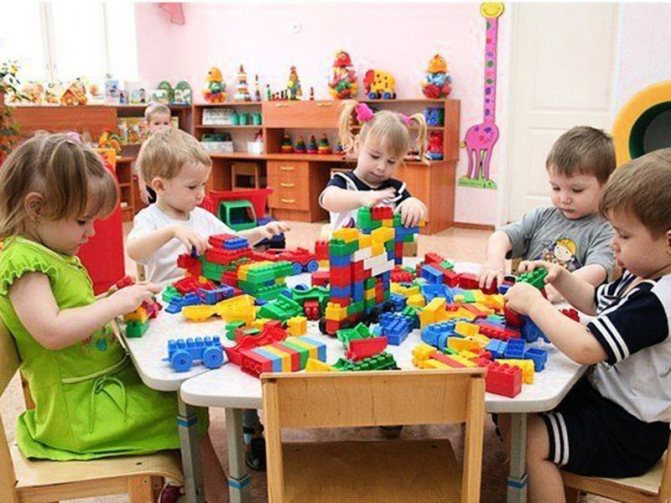
If you are not happy with the garden, you can simply change it- If something does not suit you personally in the institution , for example, a difficult psychological situation, ask this question at the next meeting to a psychologist, social worker. employees, manager. Ask what help you personally can provide to improve the situation?
- Have a tea party, organize a hike - a good thing for children, as well as help for preschool employees.
- Together with teachers, you can improve , for example, children's playgrounds, sandboxes, and, if necessary, get new, clean sand.
- Involve children in work. Let them contribute to the work, paint the sandboxes, build beautiful sand castles.
- The employees of the institution are just ordinary people , they can fall into apathy, depression, or simply be in a bad mood. Of course, there is a psychologist for this, but you can also intervene in the situation and help solve existing problems.
- defuse the situation and diversify the children’s stay with new games, competitions, making crafts and drawings.
- Make your suggestions , perhaps they will be interesting and in demand.
Right to play and recreation
As you know, at a young age, children learn information much better in a playful way, so it is very important that preschool teachers give children this opportunity to develop not only their intellectual, but also creative abilities.
Also, the rights of a child in kindergarten include the opportunity for socialization. Children are just learning to interact with a team, so the leadership of an educational institution cannot deprive them of this opportunity. In the process of playing with other students, kids develop morality and other necessary qualities.
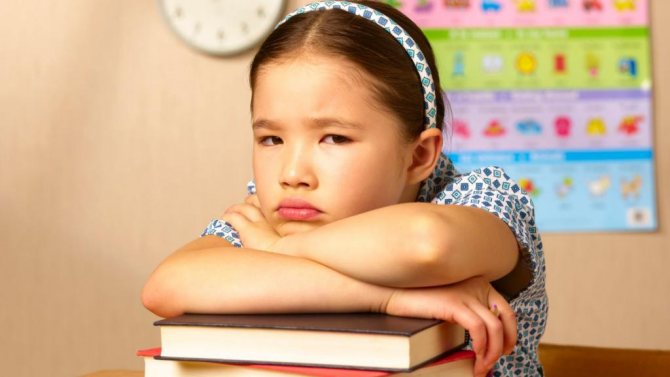
In addition, speaking about what rights a child has in kindergarten, it is worth noting that classes must alternate with rest and other entertainment that does not require mental stress. If after a day in kindergarten the child comes home tired and completely exhausted, then this indicates that the teachers of the institution are not coping with their responsibilities. Thus, they do not fulfill their job descriptions.
Can parents protect children in preschool institutions?
It is parents who can and must ensure that the rights of their children in preschool educational institutions are not violated. When choosing a kindergarten, mothers and fathers are obliged to check the level of qualifications of the teachers to whom they will take their children. If, after the first visit to kindergarten, the baby is capricious at home, refuses to sleep, or cries for no reason, then a feeling of discomfort is obvious. Parents should closely monitor the baby; if after 3-4 days his behavior does not change, nervousness increases, talk to the teachers. If after the conversation nothing changes and the child refuses to go to kindergarten, look for another preschool institution for him.
Rights to life and health
This guarantee is fundamental. In order for this right to be realized, it is necessary to carry out a number of activities on safety rules and other instructions that children must know.
In addition, a doctor must be present at the preschool educational institution who can provide the children with the necessary assistance in case of illness or injury. If there is no such specialist in an educational institution, this indicates a violation of the child’s rights in kindergarten.
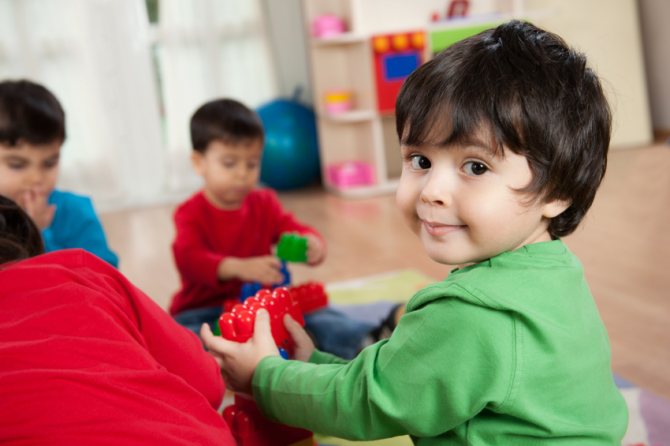
Of course, no illegal actions can be committed against the baby that could cause him physical or psychological harm. In this case, we are no longer talking about a violation, but about a more serious crime. If a teacher threatens, unfairly punishes, insults or beats a child, then in this case he must bear criminal liability for his actions.
Consultation for parents “On the rights of a preschool child”
Maria Eryomicheva
Consultation for parents “On the rights of a preschool child”
Dear parents ! We want to touch upon a very important and pressing issue related to the protection of the rights and dignity of a small child, and also consider the rights and responsibilities of parents in relation to the child.
Preschool childhood is a unique period in a person’s life, during which health is formed and personality develops. At the same time, this is a period during which the child is completely dependent on the adults around him - parents and teachers . The health of children and their full development is largely determined by the effectiveness of protecting their rights . A child deprived of care and attention has no second opportunity for normal growth and healthy development,
"The world's children are innocent, vulnerable and dependent"
,
states the World Declaration on the Survival, Protection and Development of Children. In accordance with this provision, the international community for the protection rights has adopted important documents designed to ensure the protection rights throughout the world:
The main international UNICEF documents related to children's rights include :
Declaration of the Rights of the Child (1959)
;
UN Convention on the Rights of the Child (1989)
;
World Declaration on the Survival, Protection and Development of Children (1990)
.
The Declaration of the Rights of the Child is the first international document. The 10 principles set out in the Declaration proclaim the rights of children : to a name, citizenship, love, understanding, material security, social protection and the opportunity to receive education, develop physically, morally and spiritually in conditions of freedom and dignity.
The Declaration pays special attention to the protection of the child. Based on the Declaration of the Rights of the Child, an international document was developed - the Convention on the Rights of the Child .
The Convention recognizes that every child, regardless of race, color, sex, language, religion, political or other opinion, national, ethnic or social origin, has the legal right :
- for education;
— for development;
- for defense
The Convention links the rights of the child with the rights and responsibilities of parents and other persons responsible for the lives of children, their development and protection, and provides the child with the right to participate in decisions affecting his present and future.
The Convention on the Rights of the Child is a legal document of high international standard and great pedagogical significance. It proclaims the child to be a full-fledged and full-fledged personality , an independent subject of law , and calls for building relationships between an adult and a child on moral and legal standards , which are based on genuine humanism, democracy, respect and careful attitude towards the child’s personality, his opinions and views.
“Protecting rights begins with respect for the fundamental provisions of the Convention on the Rights of the Child "
A child is considered a person who has not reached the age of 18, unless by law he has become an adult earlier (Article 1)
.
All children are equal in their rights (Article 2)
.
Children have the same rights regardless of gender , skin color, religion, origin, financial status and other differences.
The interests of the child must come first (Article 3)
.
The state, when making decisions affecting the interests of children, takes into account the rights of the child in the first place.
Right to life (Article 6)
. No one can take the life of a child or make an attempt on his life. The state is obliged to ensure the survival and healthy development of the child to the maximum extent possible.
The right of the child to be cared for by his parents (Article 7)
.
Every child has the right to a name and nationality at birth, as well as the right to know and be cared for by their parents .
The right to preserve one’s individuality (Article

. Each child is one of a kind; with all his features of appearance, character, name, family connections, dreams and aspirations.
Right to freely express one's opinion (Article 12, 13)
the child can express his views and opinions.
In the exercise of these and reputations of others
must be respected Right to protection from physical or psychological violence, insult, harsh or negligent treatment (Article 19)
.
The state must protect the child from all types of violence, neglect and abuse by parents , as well as help a child who has been abused by adults.
Right to health (Article 24)
.
Every child has the right to protect their health: to receive medical care, clean drinking water and nutritious food.
Right to protection from ill-treatment (Article 34)
. The State shall ensure that no child is subjected to torture, ill-treatment, unlawful arrest or imprisonment.
Right to education and school discipline through methods that respect the dignity of the child (Article 28)
Every child has
the right to education . Primary education should be compulsory and free, secondary and higher education should be accessible to all children. Schools must respect the rights of the child and show respect for his or her human dignity.
Right to protection from abuse (Article 34)
. The State shall ensure that no child is subjected to torture, ill-treatment, unlawful arrest or imprisonment.
The following can be considered a violation of the rights of a child:
- deprivation of freedom of movement,
- a parent leaving home for several hours and leaving the child alone (Article 156 of the Criminal Code of the Republic of Belarus suggests that locking up for a long time is qualified as a failure to fulfill the duties of raising a minor,
- use of physical violence against a child,
- humiliation of the child’s dignity - rude remarks, statements addressed to the child (instills in the child embitterment, self-doubt, inferiority complex, low self-esteem, isolation, cowardice, sadism,
- threats against a child,
- lies and failure by adults to keep their promises,
- lack of basic care for the child, neglect of his needs,
- lack of normal food, clothing, housing, education, medical care.
We would like to dwell in more detail on such a right of a preschool child as the right to play .
“Game is the leading activity of a preschooler”
.
Many people know this, but it does not always occupy its due place in a child’s life system. Nowadays, in families, instead of playing games, children often spend a lot of time watching TV or at the computer. Responsibility for ensuring the interests of the child in play rests with the family, but “society and public authorities must make efforts to promote the implementation of this right ,” states the Declaration of the Rights of the Child .
D. B. Elkonin, a famous scientist, found that story-based play in preschool age is especially favorable in the sphere of human activity and interpersonal relationships. The main content of children's games is a person, his activities and the relationships of people to each other. In addition, the game changes the relationship between children and adults, they become warmer and closer, and mutual understanding arises. Often we ourselves are to blame for many of the child’s whims and pranks, because we did not understand him in time. They spared their time and energy. They began to demand from the child what he simply cannot give us - due to the characteristics of his age and character.
The child does not obey, is uncontrollable . The reason is not in the child, but in the pedagogical helplessness of adults. For ourselves, we must decide: how do we want to raise our child? Which of you would like to see a child angry and cruel? That is why it is necessary to categorically prohibit children from beating and hurting other children, animals, insects, thoughtlessly tearing up grass and flowers, breaking trees and bushes.
You should not buy or bring all kinds of monsters and pistols to kindergarten. These games negatively affect the child’s psyche and cause aggression. When playing with pistols (it is better if children play as soldiers rather than as robbers and brigands), teach them not to aim at a person. It’s better to offer children educational toys, toys that are characters from our good fairy tales, and play story games with them.
We urge you to remove those toys that contribute to the development of cruelty and aggressiveness in a child. Do not give children the opportunity to watch horror films, murders, ugly American cartoons. It is better to use our filmstrips and cartoons, good children's books and toys. “Good Night, Kids” are especially good.
.
Knowledge and understanding right to play by all participants in the educational process allows for the full development of the child, subject to the joint efforts of the family and kindergarten.
Right to protect interests
First of all, the learning process should take into account the needs and interests of the children themselves, and not the teaching staff of the preschool educational institution. Therefore, children should be constantly supervised and comfortable throughout the day in kindergarten.
Teachers must ensure that the educational institution always has a positive microclimate that has a positive effect on the mood of children. In addition, psychological comfort is also important. This means that the baby should feel as good in kindergarten as at home. At first, new students experience stress, so the management of the preschool educational institution should not interfere with their presence in classes and other events.
It is also desirable that the educational institution has the opportunity to attend consultations for parents. This will help convey to them important information about how to prepare your child for visiting a preschool educational institution.
In addition, the management of the kindergarten must ensure that all products given to children for breakfast, afternoon snack and lunch comply with nutritional standards. All food must be prepared using high-quality equipment and taking all necessary hygienic measures.
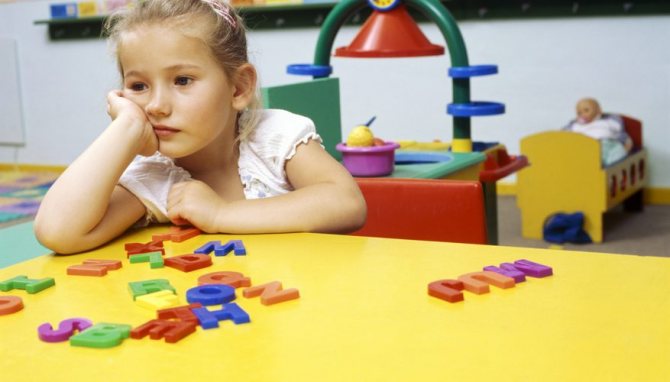
Among other things, on the first visit, the parents of the future student have every right to study in detail the canteen menu, the size of the standard portion and the quality of the products used.
However, employees of educational institutions do not always fulfill their duties. The saddest thing is that some parents do not realize that these actions are illegal.
Children's rights: rules of dialogue with preschool employees
You need to talk to preschool employees correctly. Various kinds of excuses are possible on their part; find a worthy answer to them.
- The parent suggested an excursion to the museum, the teacher refuses to participate, citing fatigue.
- This is bad, preschool workers are not at all interested, do not listen to other people’s opinions, and do not want to satisfy the requests and desires of the children.
- The teacher puts the baby in a corner, citing a broken cup after breakfast.
- It is a bad thing for a teacher to punish a child for every mistake he makes. It would be better to remain silent and even encourage the child, because he is just learning to live; moral violence against children is unacceptable.
- The teacher gave the boy a slap on the head, supposedly for his work, because before they could have given him a hard time, which means that such upbringing is normal.
- The baby is not a powerless creature, he is the same full-fledged little citizen of our country. You need to show patience and respect, despite your seniority, the beating teacher is not a teacher, he should change his job.
- According to the child, the teacher taped his mouth, because today such punishment has become fashionable among teachers, it is quite acceptable and not punishable for a teacher.
- Parents should install cameras and know more about how their children behave and what they do. You cannot refer to the fact that the child fantasizes, can invent and tell lies. From an early age, a child feels everything, understands, if he is loved and treated well, he is unlikely to lie. There is more faith in him than in the teacher, but his actions and methods of education today are easy to check.
Examples of rights violations
First of all, it is worth saying that every child should have the opportunity to attend a preschool educational institution. At the same time, parents of children should know all the necessary information about protecting the rights of the child in kindergarten.
For example, the administration of a preschool educational institution does not have the right to refuse education to a young student due to lack of places. Even if a child is not registered at his place of residence, he has every right to study at his actual location.
There are also frequent cases when the administration of a preschool institution refuses to enroll a child due to his lack of vaccinations. You need to understand that the decision that a child requires vaccination is made solely by his parents on legal grounds.
Also, preschool employees cannot prohibit a child from attending certain extracurricular activities (for example, sports clubs) if the child does not have the appropriate uniform. Wearing a uniform in an educational institution is not mandatory. By law, the administration has the right only to recommend the use of this or that clothing.
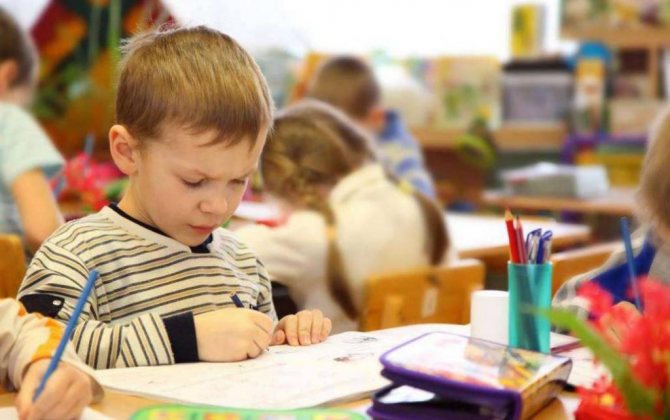
Does a kindergarten have the right to expel a child if he does not attend preschool educational institution for a long period (up to 90 days)? If parents have provided an appropriate statement explaining the reasons for not attending the institution, then no one can prevent the continuation of education.
In addition, some preschool institutions have a practice according to which they do not accept children who are not potty trained or are too active. Regardless of whether the child is active in kindergarten or has not yet learned to care for himself, the administration has no right to carry out such screening.
If representatives of an educational institution behave incorrectly and do not comply with the law, then appropriate measures must be taken.
Are there ways to find out about a violation of a child's rights?
Parents are the main defenders of their child's rights. They must know his rights and monitor their proper implementation. But this is not so easy to do; the child may come up with unnecessary circumstances or, conversely, out of fear, try to hide the unpleasant fact of the violation. The latter can be used by a careless teacher to continue his free treatment of the baby. But there are still some ways:

- a parent can talk confidentially with their child . If this does not help, play role-playing games where the child mirrors the teacher’s behavior;
- anxiety, restlessness, tearfulness and nervousness should alert any parent . The child may also refuse to go to kindergarten. It is necessary to find out the reason, perhaps even through a psychologist;
- Nowadays, parents of children from the same group often create a chat in instant messengers, where they can check with other parents about similar cases with their children in order to compare information. Before entering a particular kindergarten, you can communicate with parents in groups on social networks, collect feedback;
- parents have the right not only to come to the children's institution before admission and inspect the group, but also to ask for food certificates . The teacher does not have the right to refuse the parent this. However, if this happens, the parent can file a complaint with the head of the preschool educational institution.
Puppet show
If a child is embarrassed to get used to the role of a teacher or is afraid to independently tell about something bad, then dolls can be used for this. In this case, you need to ask the child to play the role of a bear or a dinosaur who talks about his stay in kindergarten.
During the process of such reconstruction, the baby will not realize that it is he who is pronouncing the words. For him it will be a toy that comes to life. Thanks to this, you will be able to learn many interesting facts about the learning process at a preschool educational institution.
Rights of parents of kindergarteners
Approximately 85% of Russian children aged 3-6 years attend kindergarten.
The younger age group also often attends kindergartens: this category accounts for 42% of children aged 1.5–3 years, i.e. almost half. But these are average data for the country, and in different regions of the Russian Federation the indicators vary greatly. In particular, only 6.3% of Ingush children attend kindergarten, while in Komi this figure reaches 86%.
According to the law, parents have the right to send their child to kindergarten even if he is less than 1.5 years old: nurseries are designed for babies starting from the age of two months. The responsibilities of nannies include feeding children and putting them to bed, and you can also count on providing the baby with toys and teaching useful skills. Parents have the right to send their child to a private kindergarten, but the state is still responsible for allocating a place in a non-profit kindergarten institution, moreover, not far from the place of registration, i.e. a distance of 10 km will already be a violation of the law.
Let's consider all the rights of parents of Russian preschoolers with references to the relevant laws. This article will be useful to those who are planning to send their child to kindergarten or are just planning to become a parent.
Send your baby to a nursery group at two months of age
For infants, there are nurseries in kindergartens, to which they can be sent starting from the age of two months. This possibility is provided for in Article 67 Part 1 of the Federal Law on Education. Of course, not every kindergarten institution has such groups, and even if they exist, free places may run out. It is precisely because of their shortage that today in many regions of the Russian Federation, separate buildings are specially built for nurseries on the territory of kindergartens. If a mother urgently needs to leave maternity leave, in the absence of the described obstacles, she will be able to do this by entrusting the care of the baby to specialists.
To do this, you must submit a written application and wait for a decision. You need to write in it that you want to send your baby to the nursery as early as possible, then he will get into them when free space becomes available.
Most Russian parents send their children to kindergarten at the age of three, although the law does not provide for such a limitation. This statistics is explained by the fact that maternity leave lasts only 3 years. After this period, the employer has the right to dismiss the absent parent, which forces him to return to work duties. But not every family is ready or eager to fully use up the time allotted by law, which is why the services of nurseries are in wide demand.
The baby will be accepted into the nursery regardless of whether he is already potty trained, breastfed or complementary feeding. In the first case, mothers are allowed to visit the child for feeding during work breaks, and the nanny will take care of the timely change of diapers.
Leaving the workplace to feed the baby
According to Art. 258 of the Labor Code, employed mothers have the right to leave the workplace to breastfeed the baby, without reducing wages for the period of absence. The right to pause in the performance of official duties is reserved for all working mothers whose children are not yet 1.5 years old, but in order to use it, you must first write an application addressed to the company management.
According to the Labor Code of the Russian Federation, breaks are provided every 3 hours, and they must last at least half an hour (for mothers of 2 infants, this period increases to 1 hour), and for convenience they can be combined into one break. Thus, with a standard work day lasting 8 hours, the employee has the right to take at least 2 breaks. If you wish, you can start work 1 hour later or leave it 1 hour later, or take an extended lunch break.
Payment for breaks is carried out based on the average salary for the annual period, as well as taking into account the size of the bonus for the same period.
A woman has the right to take such breaks at work, even if the child attends kindergarten and eats there. The employer is obliged to provide her with this right without reducing her salary and cannot control how the employee will spend the allotted time.
Send your child to kindergarten at your place of residence
According to Article 67, Part 3 of the Federal Law on Education in the Russian Federation, the availability of educational services is declared for all residents of the country, regardless of their citizenship, income level and place of residence. This general accessibility must also be territorial in nature, that is, parents cannot be forced to take their child to a kindergarten located at a considerable distance from home.
Current legislation stipulates that places in kindergartens should be distributed among those who live nearby, but in reality this principle is not always followed due to the lack of free places. Also, the kindergarten may be refused if the child is not registered in a specific place. Such a refusal is illegal, but sometimes possible.
In such cases, one cannot despair; on the contrary, one must defend legal rights. Often it is enough to talk with the administration of a government agency to solve the problem, but legal proceedings may be required.
The claim should indicate that the refusal to admit the child is unfounded, because lack of registration cannot be a reason, and educational services should be available to all Russians, so you ask the court to restore justice. The listed arguments look convincing, so the decision will most likely be made in your favor even if you do not have registration at your place of residence.
Send children to one kindergarten
If there were several preschoolers in a family, for the sake of convenience, many preferred to send them to one kindergarten, but this was not always possible, so in 2022 this right was enshrined at the legal level. According to Article 56 Part 2 of the Family Code and Article 67 Part 3.1 of the Federal Law on Education, every child, if his brother or sister attends a specific government institution, receives priority for enrollment. This legal norm freed parents from the need to look for workarounds and establish contact with the kindergarten administration.
As a result, the child will move up in the queue for enrollment to the first places, ahead of those who filled out the application earlier. This benefit is valid at the federal level, i.e. in all regions and settlements of the country.
To exercise this right, you must notify the administration when registering for kindergarten. Parents of preschoolers usually have several kindergartens to choose from, but one can be designated as a priority if the eldest child is already attending it.
Registration for kindergarten via the Internet
Today, it is not necessary to personally visit the institution to enroll your child. According to paragraphs 8 and 9 of the Rules for Admission to Kindergarten, this can be done on the State Services portal, and for residents of the capital there is another option - the mos.ru website. Even residents of small villages can take advantage of this opportunity.
You need to write and send 2 applications: one for inclusion in the queue, and the second for enrollment in a specific institution when a vacancy appears in it. Both actions can be done online. A function for tracking progress in the queue is available on the government services website. There you can change the original kindergarten if the queue is too long or plans have changed.
However, some prefer to submit the application themselves in order to look around the place and clarify a number of points. In any case, it’s up to you to choose what to do.
Using Enrollment Benefits
As a rule, the distribution of places in the kindergarten occurs in accordance with the queue formed on the basis of the date of submission of applications. That's why many parents tend to apply soon after their baby is born to guarantee a place for him.
However, the legislation provides for several categories of beneficiaries established by a number of presidential decrees (No. 431 clause 1, paragraph “b”, No. 1157 clause 1) and federal laws (No. 3-FZ Art. 46 Part 6, No. 76-FZ Art. 19 clause 6, No. 283-FZ Article 3 Part 14, No. 403-FZ Article 35 Part 25, No. 1244-1 Article 14, Article 15, Article 17, No. 2202-1 Article 44 Part 5, No. 3132-1 Art. 19 Clause 3). These documents establish three preferential forms of obtaining a place in kindergarten: priority, priority and priority. These categories are given places first, in the order listed. The distribution of the remaining seats is carried out according to the queue.
Let's look at these categories separately:
- The following persons have an extraordinary right: employees of the prosecutor's office and the Investigative Committee, the judiciary, victims of the Chernobyl accident and its liquidators;
- priority rights are given to: military personnel, police officers, firefighters, employees of the Federal Penitentiary Service and Federal Customs Service, bailiffs, large families, disabled people, as well as parents of children with disabilities;
- Priority rights are given to: brothers and sisters of children enrolled in a particular kindergarten.
Beneficiaries must provide relevant documents to confirm the legality of their claims.
Demand free admission to kindergarten
All Russian children, according to the Constitution (Article 43, paragraph 2), are entitled to free preschool education. Consequently, a place in the kindergarten is required to be provided, but it is not specified anywhere from what age. Most mothers who go on maternity leave need it when the child reaches 3 years of age, because... forced to return to work. That is why the President of Russia became concerned about this issue and ordered to guarantee universal access to preschool education for children under 3 years of age by 2022.
If maternity leave is coming to an end, but there is no free space, it’s time to demand it. This can be done even if the child is under 3 years old. According to the law, the administration is responsible for allocating a place, and the government agency must be located close to the place of residence. If you refuse, you should go to court, and you should do the same if they extort an enrollment fee.
A number of constituent entities of the Russian Federation provide for the payment of monetary compensation if it is impossible to find a place in kindergarten. At the national level, such compensation payments have not been established, so you can find out about your right to it at the social protection department. For example, residents of the Arkhangelsk region are paid 2,076 rubles monthly. in case of forced non-attendance of a child aged 1.5-6 years. However, there is a limitation: the total family income must be below 1.5 subsistence minimums.
Receiving compensation payments for parental payments
Despite the mandatory freeness of preschool education throughout the Russian Federation, fees for visiting kindergartens are still charged, since in addition to educational services they also provide care and food. Monthly payments can reach several thousand rubles.
But in accordance with Article 65 of the Federal Law on Education, the family can count on partial compensation of this amount. The amount of compensation payment varies greatly in different regions, however, at the federal level there is a minimum acceptable percentage of the monthly payment:
- 20% - for the 1st child;
- 50% - for the 2nd child;
- 70% - for the 3rd baby and subsequent ones.
Mandatory compensation payments are not provided for everyone, but only for the poor, large families and other vulnerable categories of the population. The list of those in need is determined at the regional level, so it differs in different regions.
Receiving a tax deduction
When spending money on educational services, tax legislation allows you to issue a deduction against the paid personal income tax. Therefore, if you have official “white” earnings and expenses for a kindergarten, you can save money by using Article 219, paragraph 1, paragraph 2 of the Tax Code of the Russian Federation.
This can be done in case of costs for:
- non-state kindergarten;
- circles and sections.
Please note that parent fees collected by all government agencies are not considered tuition fees, so no deduction is possible. But in the case of additional education (art or music school, sports clubs, etc.), this can be done provided that the organization providing it is licensed.
By taking advantage of this right, you can return 13% of the funds spent on training back to the family budget, but there is a maximum level of 6,500 rubles. (this is 13% of 50 thousand rubles - the annual limit on expenses for a child’s education).
Refuse to donate funds for the purchase of toys and repairs
According to Article 65 Part 4 of the Education Law, a municipal kindergarten has the right to require parents to pay only parental fees, since all other expenses fall on the state budget. It follows that children should be provided with toys, paints and other necessary items by default, and if this condition is not met, a complaint must be filed with the administration. To begin with, you can talk with the head of the institution.
Current repair work is also paid for from budget funds. Consumables (soap, toilet paper, etc.) must always be available, and demands to chip in for them are unlawful.
Of course, no one forbids parents to contribute funds to a special charitable fund created to improve conditions - purchase new toys, etc.
The issue of voluntary donations must be decided by the parents themselves; as a rule, this is done at general meetings. However, here we must understand that no one has the right to force them to hand over money, and the administration cannot worsen the living conditions of those kindergarteners whose parents refused to hand over money.
Refuse to donate money to buy gifts
According to the Civil Code (Article 572, paragraph 1, Article 575, paragraph 1, paragraph 2), the act of donation is gratuitous and performed on a voluntary basis. Therefore, demands to chip in for a gift for the teacher, in the absence of desire or free funds, can be safely ignored, as well as sidelong glances.
Moreover, from a legal point of view, teachers are simply prohibited from accepting gifts worth more than 3,000 rubles. Therefore, the employee of the institution will be obliged to return the expensive gift back to the donors.
However, in the case of New Year's gifts for children, it can be difficult to find a good reason for refusal. But even here the law is on the side of the parents, however, they will need to explain to the child why they didn’t give him anything at the matinee, because other parents are not obliged to chip in for everyone. A good way out of the situation would be to independently purchase a gift and then hand it over to the teacher.
Such issues are usually discussed at parent-teacher meetings. Also, their decision may be delegated to the parent committee.
Attend paid classes if desired
A municipal kindergarten may have additional paid sections and clubs, but their attendance must be voluntary. According to the law on the provision of commercial educational services, no one has the right to force parents to enroll in them or to link the opportunity to go to kindergarten with them. Therefore, you can safely refuse the services of a paid swimming pool or gymnastics lessons.
You can also refuse payment if the institution hosted a theatrical performance with the participation of visiting actors or a professional photo shoot. Such services are considered additional, so it is not necessary to follow the team and act like everyone else here.
But even if you decide to attend clubs, the tariff must be agreed upon and posted on the official website of the government agency, in a special section for commercial services. Sometimes such offers look tempting, because the child can be taught English or the basics of sports discipline, and a qualified speech therapist can also work with him.
Refuse to pay for security services
According to Article 28 Part 6 and Article 41 Part 1 Paragraph 8 of the Education Law, municipal institutions are obliged to take upon themselves the issue of ensuring the safety of kindergarteners. The legal requirement provides for the protection of the building, the installation of barriers around the playground, monitoring the serviceability and availability of fire extinguishers, and also mandatory training of teachers in the rules of first aid. Security guards must also be present in the kindergarten, as required by the counter-terrorism law.
The nuances of organizing security are determined by the category to which the government institution belongs (1st, 2nd or 3rd). The greater the number of students, the higher the category. You can find out which category a particular establishment belongs to from its management.
Each kindergarten is required to be under round-the-clock supervision, have a security alarm and a special panic button that allows you to instantly call law enforcement for help. In the case of categories 1 and 2, another requirement appears: employees of state or commercial security agencies are required to protect the institution. In establishments of the 3rd category, it is enough to hire a watchman or watchman to supervise. However, one guard must be present.
Ensuring the protection of preschool children is the responsibility of state and municipal authorities; charging a separate fee for this is prohibited. If there is no security and you are required to pay for it, you should file a complaint with the prosecutor's office.
But the management of the kindergarten has the right to recommend that parents increase the level of security. For example, if the law regulates the presence of a watchman, you can also install video cameras of a surveillance system, as well as find a paid security guard, and install auxiliary barriers to protect the younger group. But payment for such improvements must be made at will.
Demand compensation for damages
When sending a child to a kindergarten, parents instruct its workers to look after him and take care of his safety. Therefore, if a child suffers physically due to injury received as a result of neglect, or morally due to poor attitude from peers or employees of the institution, then, according to Article 1068 of the Civil Code, parents have the right to demand compensation for the harm caused. In particular, the following may be compensated:
- Treatment costs. This includes visiting a doctor, laboratory tests, and purchasing medications. But you will need to provide receipts and prescriptions.
- Moral damage. Here we are talking about the baby’s suffering and your own experiences due to the current situation.
In the event of an incident that caused harm to the baby, you should make a written statement requesting compensation, addressing it to the management of the institution and attaching photocopies of receipts to confirm the costs incurred. If compensation is refused, a statement of claim must be filed with the court.
Choose who can pick up the child
To conclude an agreement with a government agency, a signature from the father or mother is sufficient, but both parents will be able to bring the child to and from the kindergarten. This right is granted to them by Article 185.1 of the Civil Code of the Russian Federation. The institution will retain a photocopy of the child’s birth certificate indicating the parents’ full names, so even unmarried or divorced parents will be able to exercise this right.
But if circumstances force it, you can arrange for a nanny or one of the other family members to come pick up the baby. To do this, you will need to issue a power of attorney, writing it manually, without notarized confirmation, and notify management of your desire.
The text of the agreement signed with a municipal organization may provide for additional conditions, in particular, restrictions on the age of who can come for the baby (at least 16 years old).
Work with your child at home
In Russia, at the legislative level, all residents of the country are guaranteed accessible and free preschool education. However, whether to use this right or not is up to the parents of the preschooler to decide. You can not only send your child to a paid kindergarten, but also stay at home with him - this will not affect enrollment in 1st grade.
According to Article 17 Part 1 Clause 2 and Article 64 Part 3 of the Law on Education, as well as Clause 3 of the rules for operating kindergartens, you can educate a child not only in educational institutions, but also at home, on your own or with the help older relatives or hired personnel.
The state has the responsibility to provide assistance to parents who are focused on family education. They have the right to count on free provision of methodological, teaching and psychological support, and will also be able to consult with specialists regarding the format of teaching and educational programs. The application for choosing family education must be submitted to the territorial department of education, where you can ask any questions you may have.
Optional absence from classes
Since there is no obligation to take your child to kindergarten every day, you can make absences without explanation, without fear of sanctions in the form of expulsion or other form of punishment. The right to skip classes is provided for in Article 43 Part 5 and Article 61 of the Education Law.
Of course, for the child’s convenience, it would be more correct to adhere to a daily routine so that he has a daily nap and meals on a schedule. However, you can pick it up at any time - to visit clubs, sections or other purposes. The administration will not be able to prevent this.
However, in case of a planned long-term absence, you need to draw up an application addressed to the management of the establishment. The fact is that employees of the institution are obliged to monitor the well-being of those being educated and report to the administration. They have the right to know that the baby is in good health and everything is fine with him.
As a rule, passes are not subject to payment, but you need to look at the terms of the concluded contract. In particular, in commercial institutions the document may indicate the number of missed days that are not subject to payment.
If you are absent from the garden for many days, you may be required to present a certificate from a pediatrician confirming the absence of diseases. The SanPiN established an indicator of 5 missed days in a row, however, with the advent of 2022, this provision lost force and now one must focus on the internal rules of a particular institution.
Free vaccination
Timely vaccination allows you to protect against many infectious diseases. In the Russian Federation, a special vaccination calendar has been developed for children. According to Article 5, paragraph 1, paragraph 4 No. 157-FZ, any vaccination included in it is done free of charge according to OMC.
Unfortunately, the choice of vaccine manufacturer in such a situation is not always available. If the required vaccination has not been delivered to the medical institution at your place of residence, then you will have to wait for delivery or have it administered for a fee in a commercial hospital.
Sometimes vaccination is carried out in kindergartens if parental consent has been previously obtained. There is also no charge for it.
Taking an unvaccinated child to kindergarten
There is no law on compulsory vaccination in Russia, therefore, if there are contraindications or simple reluctance, parents will be able to refuse vaccinations, and the kindergarten management does not have the right to force them or refuse the child to visit the institution, because this would be a violation of the principle of voluntary vaccination. In accordance with Article 5, Clause 1, Paragraph 8 No. 157-FZ, an unvaccinated child can attend kindergarten on an equal basis with vaccinated peers.
However, the law provides several restrictions for such children. For example, if one of the children received a live polio vaccine, those who did not receive it will have to temporarily change their kindergarten group or stay at home for 2 calendar months to avoid infection.
Separately, it is worth mentioning the Mantoux test, intended for the diagnosis of tuberculosis. Since it is not a vaccine, the above rules do not apply to it. Due to the difficult situation with the spread of tuberculosis in the Russian Federation, the annual Mantoux test was made mandatory, and if it is refused, the kindergarten management has the right to refuse the child to attend.
Of course, not all parents are happy with this situation, but the decision of the Supreme Court on this matter is clear. If desired, you can replace Mantoux with an X-ray examination or Diaskintest, but you will definitely have to provide a medical certificate confirming the absence of infection. Otherwise, the child will remain at home, because in addition to the right of a particular child to education, there is also the right of others to health and safety.
Change of kindergarten on request
As a rule, children attend kindergarten for several years, during which a lot can change: from changing their area of residence to moving to a foreign city. It also happens that a child experiences discomfort in a particular institution, and therefore parents want to change it. This right is granted to them by order of the Ministry of Education No. 1527.
To apply for a transfer, you need to apply to the municipal education department, where after registration, taking into account the available benefits, you can choose one of the vacancies in other government institutions. You will also need to pick up the children's medical card from the old kindergarten.
Opening a family kindergarten
Family groups can be formed at kindergartens, in which classes are held not within the walls of a government institution, but in a cozy home environment. The difference with family education is that in such a group one of the parents receives the status of a teacher, in essence, is employed in a kindergarten and is assigned a salary. This format of education is optimal for large families, which have the right to expand the kindergarten group by accepting preschoolers from outside. As a rule, from 3 to 5 children study in one group.
The possibility of creating such groups is provided for in clause 13 of the rules for operating kindergartens, as well as in letter No. 08-364 of the Ministry of Education. The children who attend them are considered pupils of the kindergarten, despite the fact that they spend most of the day elsewhere. They still have access to walks on the playground, festive events and additional activities (music lessons, physical education, etc.).
If the family group is geographically located not far from the kindergarten, the pupils will be able to eat food from the kindergarten cafeteria, and it will be brought directly to their home.
In different regions of the country, the rules for the operation of such groups vary greatly. In some regions they are given all kinds of support, in others it is quite difficult to organize a family kindergarten. But you can always find out more about this from the kindergarten management and the territorial education department. all articles
Observation
In order to draw conclusions about the work of the organization’s employees, you can casually visit a preschool educational institution during a walk or class. At the same time, it is worth taking a closer look at the behavior of teachers. If they behave aggressively and yell at children, then this behavior should not be ignored.

On the other hand, a teacher who looks away aloofly while children push each other is also a serious offense.
Based on all this data, conclusions can be drawn about the work of the educational institution. If they cannot cope with their responsibilities, then it is necessary to take active action.
What is child abuse?
The definition of “abuse” includes beatings, sexual, emotional or physical violence (for example, yelling, insults, humiliation). In kindergartens, violations of this kind occur quite often, and teachers consider it normal to shout at children, call them ugly names, and slap them in the face. If you find out that a child’s rights are being violated (examples of such situations are common), that is, some kind of violence was used against the child, transfer him to another preschool institution.




